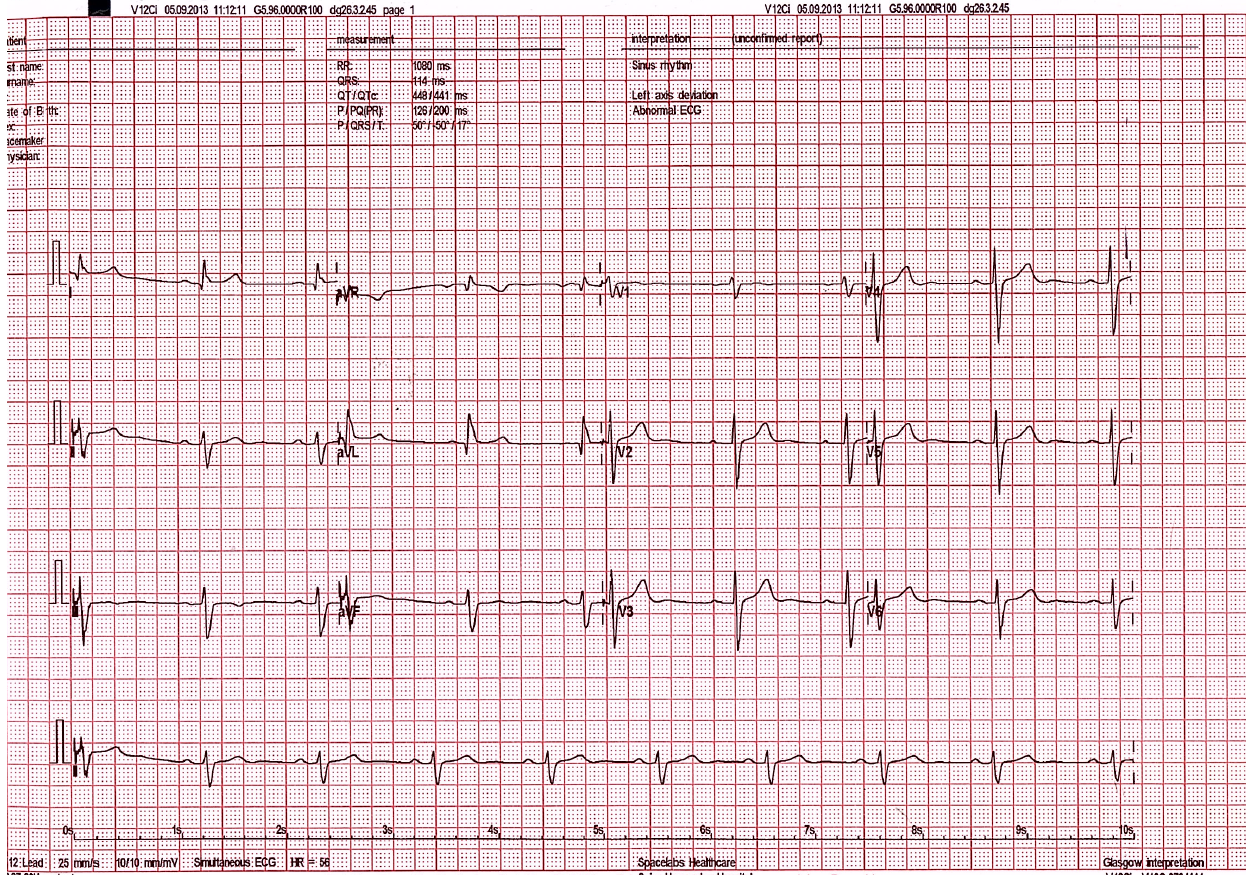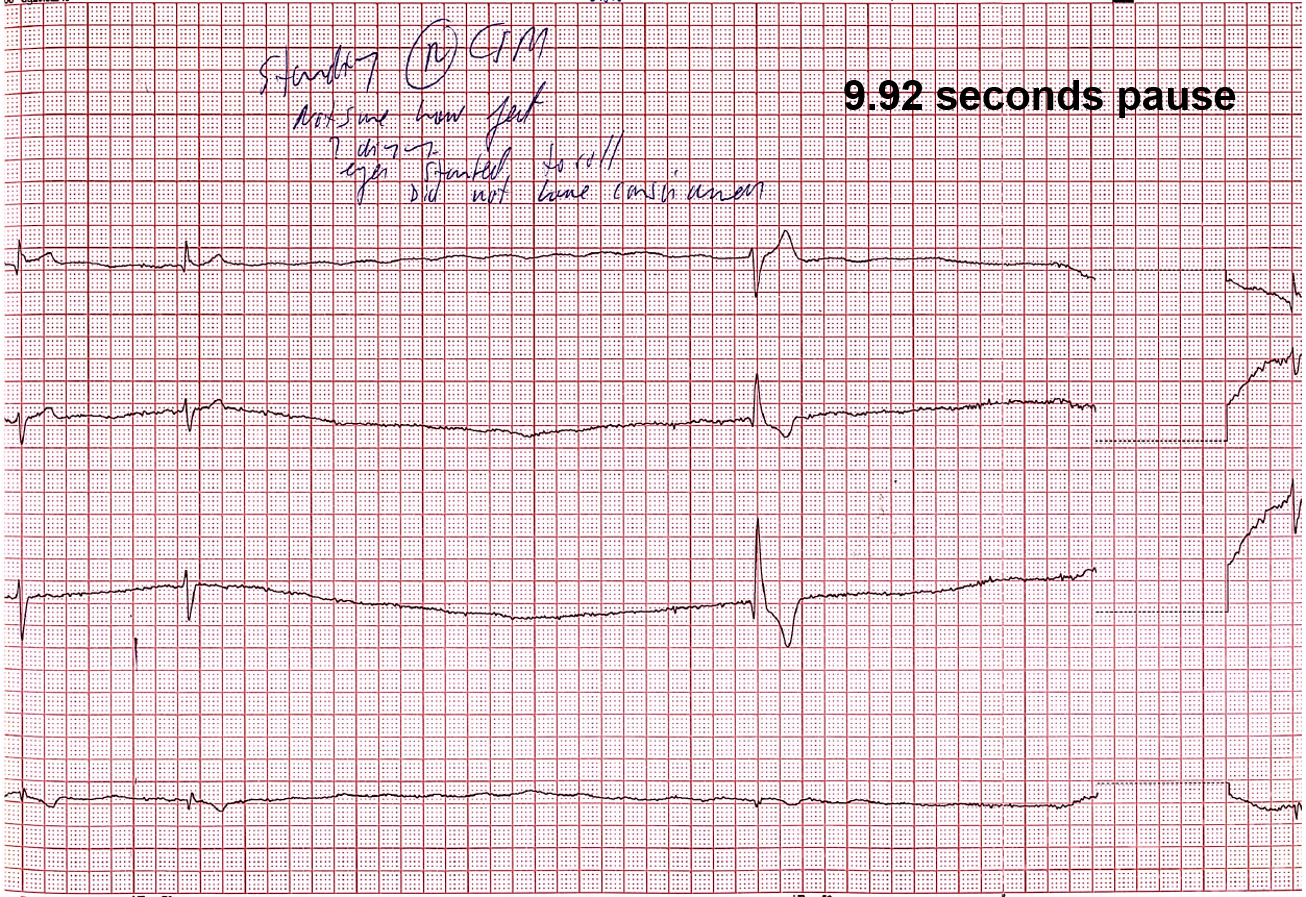Case 1
A 57 year old male patient presenting with acute onset chest pain. His electrocardiogram (ECG) showed a heart attack. He was a smoker (20 cigarettes/day) with a history of hypertension (high blood pressure), which was controlled. His cholesterol was within normal limits (total cholesterol = 4.2 mmo/l, HDL 1.01 mmol/l, LDL 2.7, TGL = 1.9 mmol/l, TC/HDL = 4.2). He weighed 97kg with a height of 183cms and a body mass index of 29.
The video file on the left shows a blocked right coronary artery (the cause of his heart attack). To reopen the artery, a wire was inserted (middle video) and subsequently a stent was implanted. The video file on the right shows the restoration of flow in the artery and a successful outcome.
Case 2
A 78 year old male patient was reviewed with a history of intermittent dizziness, falls and two collapses. During one of his collapses he sustained a cut to the back of his head which required gluing.
He has a history of mild aortic valve stenosis (narrowing), hypertension, asthma, and hip arthritis. Examination pulse rate 66 beats/minute, BP 110/80 with no significant change in blood pressure after checked at 1 minute and 3 minutes with unsupported standing. Massage of right neck artery for 4 seconds resulted in his heart stopping beating for almost 10 seconds associated with the patient collapsing (ECG 1 and 2). This condition is called carotid hypersensitivity syndrome. He was successfully treated with a pacemaker.
Baseline ECG

Right Carotid Sinus Massage

Case 3
A 44-year-old lady with a history of palpitations for over 10 years, but over the past year, her symptoms have worsened. Her palpitations can occur at any time, and are described as fast, regular, and lasting a few minutes. She can terminate her episodes by holding her breath and “bearing down”. She sometimes experiences a heavy pressing pain during her palpitation symptoms. Her symptoms are variable and can occur once a week or every few weeks. She is able to jog two times a week without any exertional symptoms although she has experienced her palpitations whilst jogging. She drinks up to two cups of coffee a day and up to 3 units of alcohol a week. There are no risk factors for ischemic heart disease. She had blood tests (full blood count, biochemical profile and thyroid function), an exercise tolerance test, an echocardiogram and a one week ECG monitor, which were all normal. She bought an AliveCor (Kardia) ECG monitoring system that she can use with her i Phone (figure).
Three weeks later, she had an episode of palpitations and used her AliveCor ECG monitor (figure). This showed a narrow complex tachycardia with a ventricular rate of approximately 153 beats per minute. Her symptoms spontaneously settled after approximately one minute. She was referred for an electrophysiological study and was found to have an Atrioventricular nodal reentrant tachycardia (AVNRT), which was successfully ablated. She has been well ever since.
AliveCor (Kardia) ECG monitoring system that can be used with an i phone or android phone.

Baseline ECG with no symptoms

ECG during palpitation symptoms showing a narrow complex tachycardia with a heart rate of 153 beats per minute.

